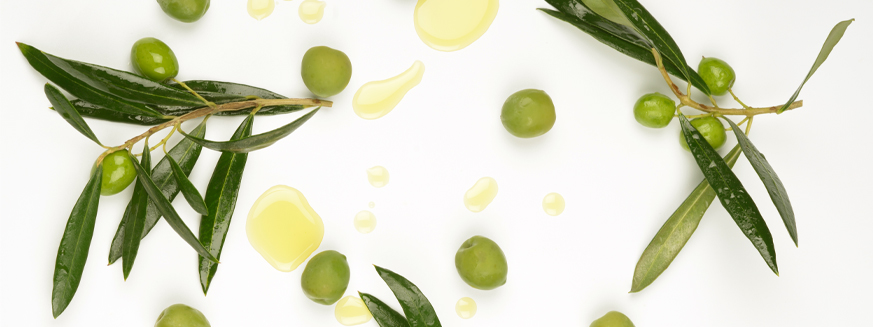The Fresh Blog
Lifestyle, Health, Nutrition & Inspiration from Luvo
The 411 on Oils
Oils are essential in cooking. They lubricate the cooking process and enhance the flavor and texture of food. Some oils deliver healthy fats your body needs, and others are not so healthy.
Regardless of the type of oil you use, you should always do so sparingly, as it can add a ton of calories and fat to your food. Used strategically, however, oils are your friend. You just have to know which oil to use, how much, and when, for optimal results.
Say No to Smoking
Different oils have different smoke points. Smoke point refers to the heat level required for smoke to start rising from the oil. Smoking oil is not good; it produces toxic fumes and harmful free-radicals.
To avoid the harmful effects of smoking oil, choose an oil with an appropriate smoke point for what you’re trying to do. High smoke point oils are best for high-heat cooking because it takes longer for them to start smoking. Medium smoke point oils are good for stir-frying and baking. Low smoke point oils should never be heated, and are best for dressings and dips. High and medium smoke point oils can also be used in cold recipes.
Optimal Oil Storage
The way you store your oil can have a negative impact on its composition. Oils exposed to excessive heat, light and air can go bad quickly. Different oils have different storage requirements, and abiding by those guidelines can help you keep your oil in its healthiest state. Damaged oils can be really bad for your health, even becoming carcinogenic in some cases.
Glossary of Oils
Here’s a breakdown of some common cooking oils, including their smoke points, optimal cooking uses and storage tips:
Olive Oil
Smoke point: Perhaps one of the most popular cooking oils, olive oil has a medium smoke point, meaning it is not ideal for high-heat cooking. Many people make that mistake, however. Olive oil is best for stir-frying, salad dressings and other medium-to-low-heat applications.
Fat content: Olive oil is high in fat, but mostly polyunsaturated and monounsaturated fats, which are the ‘good fats’. Still, it should be used sparingly. A hundred grams of olive oil contains the same amount of fat and 884 calories!
Storage: Because olive oil is high in monounsaturated fat, it can be stored for longer periods of time than other oils. Tinted glass and non-reactive metal containers are best for protecting the oil from damage from too much light. Store your olive oil in a cool, dark place away from the stove to avoid heat damage. If your kitchen gets really hot, you can store your olive oil in the fridge.
Coconut Oil
Smoke point: Touted by many as a miracle oil with many applications (not just kitchen-related), coconut oil has a medium smoke point. Like olive oil, coconut oil is ideal for stir-frying and baking.
Fat content: Coconut oil is the most concentrated food source of saturated fat, which is the bad kind of fat. So why is it so popular among the wellness community? Apparently lauric acid–the type of saturated fatty acid in coconut oil–has been linked to raising ‘good cholesterol’. To learn more about whether or not coconut oil deserves all the praise it’s getting, check out this informative article from the University of California, Berkley.
Storage: Depending on where you live and the time of year, your coconut oil might look very different. It melts at 76° F, and stays solid in cooler temperatures. Coconut oil actually has a longer shelf life than most oils, and can be stored in your cupboard at room temperature for up to two years. It is best stored in a glass container or BPA-free plastic container.
Sunflower Oil
Smoke point: Sunflower oil has a high smoke point, meaning you can use it safely in a variety of applications, from making dressings to deep frying.
Fat content: With 46 grams of monounsaturated fat per 100 grams, sunflower oil can be considered one of those ‘good fats’. It’s also a good source of heart-healthy linoleic acid, which is not naturally synthesized by the human body.
Storage: Sunflower oil contains relatively less stable fats than other oils, meaning improper storage can lead to degradation of the nutrient content and even turn the oil rancid. To protect the oil from damage from heat, light and air, sunflower oil should be stored in dark glass in a cool place.
Avocado Oil
Smoke point: With its high smoke point, avocado oil is ideal for cooking at high temperatures (side note: have you tried avocado oil potato chips? Do it.) It also makes a great base for dressings.
Fat content: Just like the avocado, avocado oil is mostly comprised of monounsaturated ‘good’ fats. It also improves your absorption of various vegetable-bound antioxidants like beta-carotene, which is fat-soluble (making it an excellent salad dressing option).
Storage: Like most oils, avocado oil is best stored in a cool, dry, dark place. You can store it in the fridge to extend its shelf life even further.
Sesame Oil
Smoke point: One of my favorite oils, sesame oil adds a distinctive flavor to your cooking, especially the toasted variety. With its medium smoke point, sesame oil should not be heated to high temperatures; it’s best used as a flavor-enhancer in dressings, marinades and stir-fries.
Fat content: Sesame oil is considered a heart-healthy oil due to its unsaturated fat content.
Storage: Storing your sesame oil in the fridge will extend its shelf life. Doing so may cause the oil to solidify a little, but that’s nothing to be concerned about, as it will return to its liquid state at room temperature.
What are your favorite cooking oils? Share in the comments or over on Twitter at @luvoinc.


